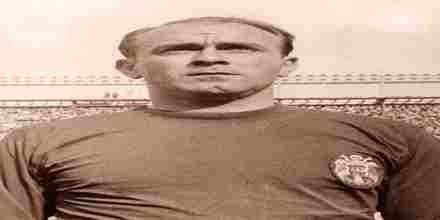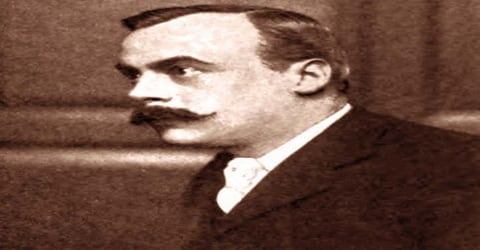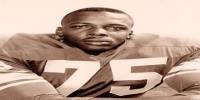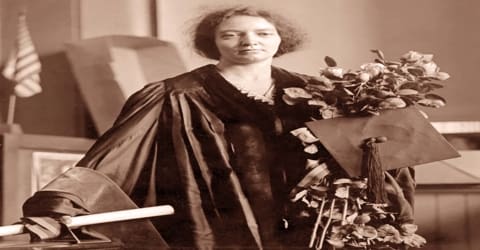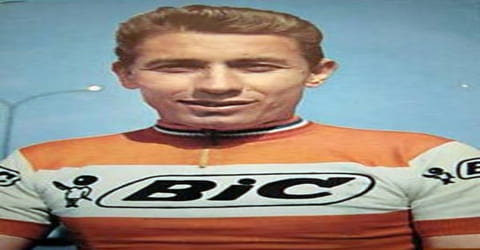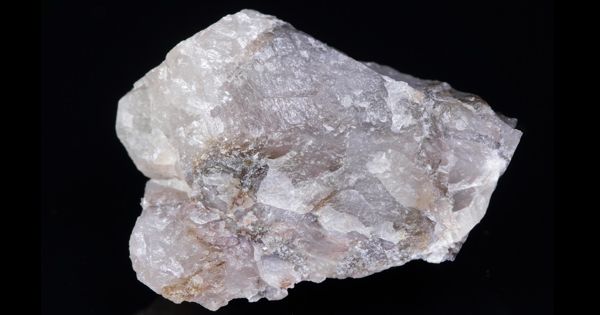Alfredo Di Stéfano – Soccer Player (1926–2014)
Full name: Alfredo Stéfano Di Stéfano Laulhé
Date of birth: 4 July 1926
Place of birth: Buenos Aires, Argentina
Date of death: 7 July 2014 (aged 88)
Place of death: Madrid, Spain
Height: 1.78 m (5 ft 10 in)
Playing position: Forward
Early Life
Alfredo Di Stéfano was an Argentine-born football (soccer) player and manager, regarded as one of the greatest centre forwards in football history. His reputation was based largely on his performance for the Spanish club Real Madrid (1953–64), for which he was an intelligent player with exceptional all-around skill and stamina. He was twice named European Footballer of the Year (1957, 1959).
Alfredo Estéfano Di Stéfano Laulhé was born on July 4, 1926, in Buenos Aires, Argentina. Di Stéfano was the son of Alfredo Di Stéfano, a first-generation Italian Argentine (his father Michele emigrated to Argentina from Nicolosi in the 19th century), and Eulalia Laulhé Gilmont, an Argentine woman of French and Irish descent with her relatives being from Swinford, County Mayo.
Di Stéfano, nicknamed “Saeta rubia” (“Blond Arrow”), was a powerful, quick, skillful, and prolific forward, with great stamina, tactical versatility, creativity, and vision, who could also play almost anywhere on the pitch. He is currently the sixth highest scorer in the history of Spain’s top division, and Real Madrid’s third highest league goalscorer of all time, with 216 goals in 282 league matches between 1953 and 1964. He is Madrid’s leading goalscorer in the history of El Clásico.
Alfredo Di Stéfano starred for Argentine and Columbian soccer clubs from 1945 to 1953. His move to Spain brought more success, as he twice won the Ballon d’Or Award while leading Real Madrid to eight league titles and five straight European Cup championships.
He began his career at Argentina’s River Plate aged 17, in 1943. For the 1946 season he was loaned to Club Atlético Huracán, but he returned to River in 1947. Due to a footballers’ strike in Argentina in 1949, Di Stéfano went to play for Millonarios of Bogotá in the Colombian league. He won six league titles during the first 12 years of his career in Argentina and Colombia.
Playing Career
Alfredo Di Stéfano played one game for River Plate’s senior club in 1945 before spending the 1946 season on loan to Club Atlético Huracán. The striker blossomed upon his return to River Plate in 1947, leading the league in scoring while helping his team win the Primera División. That same year, Di Stéfano starred for the victorious Argentinean national team at the Copa America in Ecuador with six goals in as many matches. Known by this point as “La Saeta Rubia” (“The Blond Arrow”) for his hair color and speed, Di Stéfano was on his way to being recognized as one of the premier all-around talents in the world.
He scored 216 league goals in 262 games for Real (then a club record, since surpassed by Raúl and Cristiano Ronaldo), striking up a fearsome partnership with Ferenc Puskás. Di Stéfano’s 49 goals in 58 matches was for decades the all-time highest tally in the European Cup. It has since been surpassed by six players, initially Real Madrid’s Raúl in 2005 and most recently by Cristiano Ronaldo in 2014 and Karim Benzema in 2016.
When Argentine soccer professionals went on strike in 1949, Di Stéfano was among the players who crossed the border to play in Colombia. He thrived for the Millonarios Fútbol Club in Bogotá, leading the club to Columbian league championships in 1949, 1951, 1952.
Di Stéfano scored in five consecutive European Cup finals for Real Madrid between 1956 and 1960, including a hat-trick in the last. Perhaps the highlight of his time with the club was their 7–3 victory over Eintracht Frankfurt in the 1960 European Cup Final at Hampden Park, a game many consider to be the finest exhibition of club football ever witnessed in Europe.
He was awarded the Ballon d’Or for the European Footballer of the Year in 1957 and 1959. He moved to Espanyol in 1964 and played there until retiring at the age of 40.
Di Stéfano scored 6 goals in 6 games as Argentina won the 1947 South American Championship, his only games for the country. The first World Cup in which he would have been able to participate was the 1950 tournament. As Argentina refused to participate, Di Stéfano (aged 24) missed his first chance at playing in the World Cup. For the 1954 World Cup, Argentina again did not enter and FIFA declared Di Stéfano was not eligible to play because he had previously been capped by both Argentina and Colombia.
He played four World Cup qualifying matches in 1957, but the team failed to qualify for the 1958 World Cup. In 1961, Di Stéfano (36) who had already won 5 European Cups, helped Spain qualify for the World Cup of 1962. A muscular injury just before the competition prevented him from playing in the finals. He retired from international football afterwards.
He was kidnapped before a tournament in Venezuela on the night of 24 August 1963, the Venezuelan revolutionary group Armed Forces of National Liberation (FALN) at gunpoint from the Potomac Hotel in Caracas while his team, Real Madrid, were on a pre-season tour of South America. Di Stefano was released unharmed two days later close to the Spanish embassy without a ransom being paid, and Di Stefano stressed that his kidnappers had not mistreated him. A Spanish movie entitled Real, La Película (Real, The Movie), which recounted these events, was released on 25 August 2005. In a bizarre publicity stunt at the premiere, kidnapper Paul del Rio, now a famous artist, and Di Stefano were brought together for the first time since the abduction, 41 years before. After celebrating one final La Liga title with Real in 1964, he spent two years with RCD Espanyol before announcing his retirement. Despite his staggering collection of accomplishments, the Argentine great never had the chance to display his skills in World Cup play.
Senior career
Years Team Apps (Gls)
1945–1949 River Plate 66 (49)
1946 Huracán (loan) 25 (10)
1949–1953 Millonarios 102 (90)
1953–1964 Real Madrid 282 (216)
1964–1966 Espanyol 47 (11)
Total 522 (376)
Coaching Career
He guided the Argentine clubs Boca Juniors and River Plate to league titles, and won La Liga and the Copa del Rey with Valencia as well as the European Cup Winners’ Cup with the side in 1980. He also managed Sporting in the 1974/75 season and Real Madrid between 1982 and 1984. The 1982–83 was catastrophic for Real, they finished second in La Liga and were defeated finalists in the Supercopa de España, Copa de la Liga and Copa del Rey. Madrid were also beaten by Aberdeen, managed by Alex Ferguson, in the European Cup Winners’ Cup final.
In early 2000, Di Stéfano finished fourth in the International Federation of Football History and Statistics’ “Player of the Century” poll. That same year, he was decreed honorary president of Real Madrid for his years of distinguished service as a player and manager.
In October 2011, Di Stéfano was named the first inductee to the FIFA Hall of Fame by the governing body’s president, Sepp Blatter.
Personal Life
Di Stéfano married Sara Freites in 1950, they had six children; Alfredo, Ignacio, Sofia, Silvana, Helena and Nanette, who died in December 2012. At the time of his death he was dating his Costa Rican girlfriend Gina González, his former secretary, 50 years his junior.
Death
On July 5, 2014, it was reported that Di Stefano had a heart attack and was taken to a Madrid hospital where he remained in a coma. He died two days later on July 7, 2014 at the age of 88.
On 8 July, his coffin was placed on public display at the Bernabéu Stadium. Real Madrid president Florentino Pérez and captain Iker Casillas were amongst those in attendance. Following his death Di Stéfano received tributes from many famous football personalities including Alex Ferguson, Johan Cruyff, Pelé, Cristiano Ronaldo, Diego Maradona and Bobby Charlton. During the 2014 FIFA World Cup semi-final between Argentina and the Netherlands on 9 July, Di Stéfano was honoured with one minute of silence, while the Argentine team also wore black ribbons in a matter of respect.
The Club Atlético River Plate from Argentina and Millonarios Fútbol Club from Colombia organized a friendly match in homage of their former player. The match was played on 16 July 2014, at the Millonarios’ Estadio El Campín.
Honours
National Team
- Argentina
- Copa América: 1947
Club
River Plate
- Primera División: 1945, 1947
Millonarios
- Colombian Championship: 1949, 1951, 1952
- Copa Colombia: 1953
- Pequeña Copa del Mundo de Clubes: 1953
Real Madrid
- Intercontinental Cup: 1960
- European Cup (5): 1955–56, 1956–57, 1957–58, 1958–59, 1959–60
- Primera División (8): 1954, 1955, 1957, 1958, 1961, 1962, 1963, 1964
- Copa del Rey: 1962
Individual honours
- Argentine Primera División top scorer: 1947
- Campeonato Profesional top scorer: 1951, 1952
- Pichichi Trophy: 1954, 1956, 1957, 1958, 1959
- Ballon d’Or: 1957, 1959
- Super Ballon d’Or, by France Football: 1989
- European Cup top scorer: 1958, 1962
- Spanish Player (Athlete) of the Year: 1957, 1959, 1960, 1964
- FIFA Order of Merit: 1994
- World Soccer World XI: 1960, 1961, 1962, 1963, 1964
- World Team of the 20th Century: 1998
- FIFA 100: 2004
- UEFA Jubilee Awards – Golden Player of Spain: 2004
- Golden Foot: 2004, as football legend
- World Soccer Greatest XI of all time: 2013
Manager
Boca Juniors
- Primera División: 1969
- Copa Argentina: 1969
River Plate
- Torneo Nacional: 1981
Valencia
- Primera División: 1970–71
- European Cup Winners’ Cup: 1979–80
- Segunda División: 1986–87
Real Madrid
- Supercopa de España: 1990
Records
- Scored in most European Cup finals: 5.
- Scored in most consecutive European Cup finals: 5.
- Most goals scored in European Cup finals: 7 (shared with Ferenc Puskás)
- Only player to be awarded the Super Ballon d’Or
